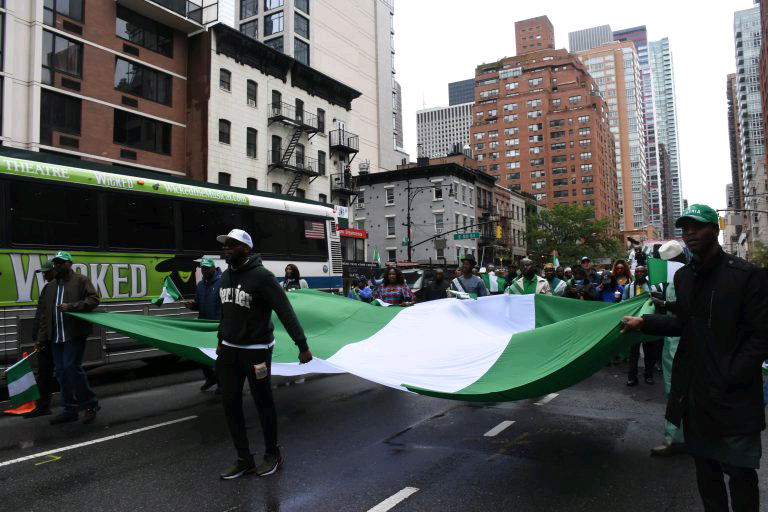The protest in Nigeria has taken a tragic turn with the display of foreign flags by some Northern youths as a demonstration against the government. This action undermines Nigeria’s sovereignty and raises concerns about the changing dynamics in the world.
As pointed out by the Punch editorial, the flag-waving campaign shows that Nigeria should be wary of foreign interference, as witnessed in the crises in some West African countries that led to undemocratic military takeovers. There are speculations that some protesters were sponsored to raise the Russian flag as a deliberate attempt to provoke the military into intervention.
While Nigerians have the right to express their grievances over economic hardship, they should do so through legitimate and peaceful means. Resorting to violent demonstrations that result in loss of life and destruction of livelihoods is counterproductive.
It is concerning that underage protesters and youths were the ones mostly flaunting the Russian flags, forcing security agents to clamp down on them. The government should be compassionate in dealing with these minors, as they may be ignorant of the implications of their actions. They should be sent to remand centres for civil education and skills training, rather than facing harsh punishments.
The media have reported the loss of lives and an estimated daily loss of N400 billion due to the protests. This raises the question of whether the demonstrations were truly worth the cost.
The government should be open to dialogue and engagement with citizens to address their challenges. The security services, too, should be vigilant and professional in handling protesters, especially the young ones.
The Nigeria Immigration Service has a crucial role to play in checking the influx of foreigners with ulterior motives, as there have been allegations of illegal immigrants participating in the protests.
Religious and community leaders should admonish their followers on the consequences of unbecoming behaviors and appeal to the government to address the citizens’ concerns.
Despite the hardship, Nigerians must remain patriotic and respect the sovereignty of their country. Raising flags of other countries and seeking their intervention in domestic affairs is a treasonable offence.
The government should realize that the majority of the citizens are against the protest, not because they are not feeling the pinch of the hardship, but because they believe the issue can be resolved through other peaceful means. The government should, therefore, take appropriate actions to address the citizens’ concerns.
Nigeria will overcome this challenge, but change begins with us.




